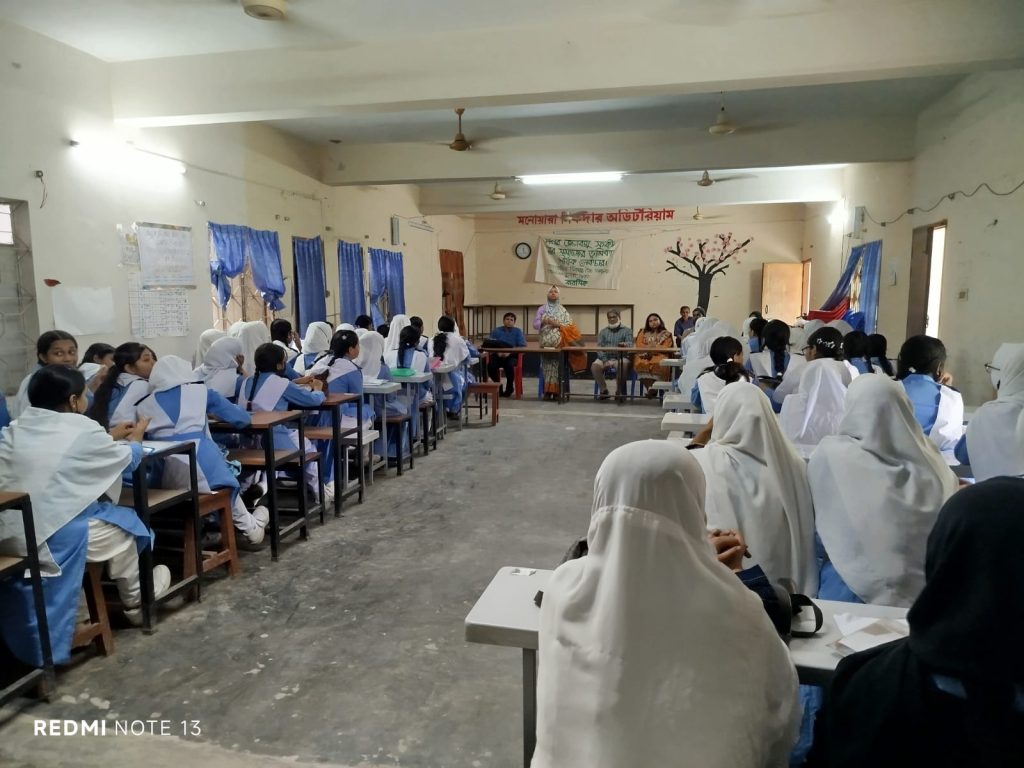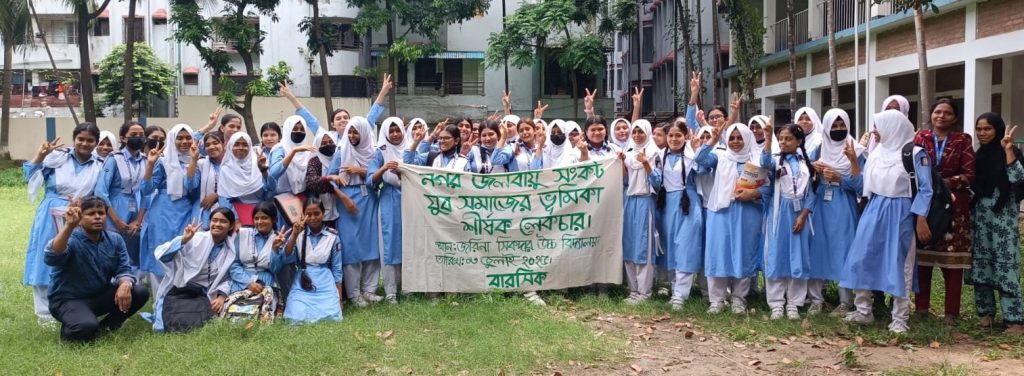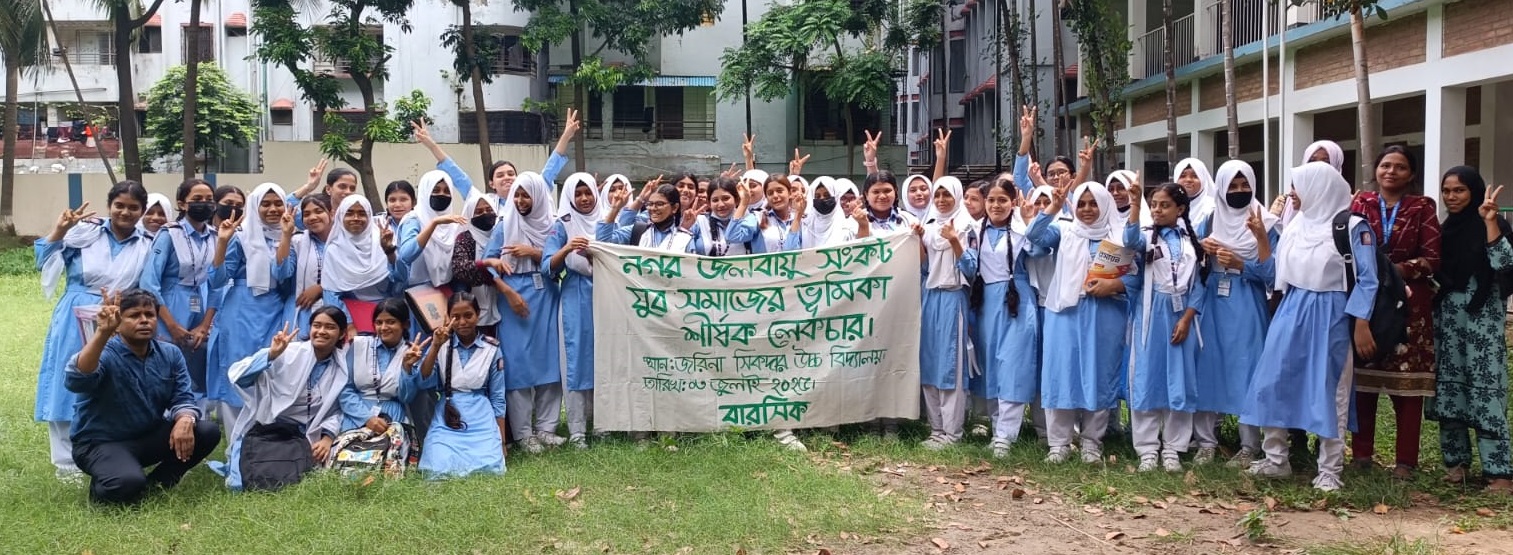By Runa Akter, from Dhaka
BARCIK recently organized a lecture titled “Urban Climate Crisis and the Role of Youth” at Jarina Sikder Girls High School and College in Dhaka. A total of 65 ninth-grade students actively participated in the event.

The session was inaugurated by the institution’s principal, Rokhsana Sultana, who urged students to be aware of the ongoing climate crisis saying, “Poor communities in countries like ours are facing daily struggles due to climate impacts. Youth like you must step forward to protect them,”.
Acting head teacher Md. Eklas Hossain, youth activist Md. Saddam Hossain, BARCIK coordinator Md. Jahangir Alam, associate coordinator Shaheda Purna, program officer Hena Akter Rupa, and community facilitator Runa Akter also were present in the event.
Jahangir Alam said, “Urban areas are not exempt from the effects of climate change. With nearly 20 million people living in Dhaka 25,000 per square kilometer; it is one of the most densely populated cities in the world. This density is contributing to rising levels of air and noise pollution.”
He went on saying, “Research shows that air pollution causes 30,000 to 40,000 deaths annually in Bangladesh, while noise pollution claims around 28,000 lives. The climate crisis is a major threat to cities like Dhaka.” Alam also explained the difference between weather and climate, noting that wealthy industrial nations bear most responsibility for climate change, but poorer countries suffer the consequences, rising cyclones, salinity, floods, and droughts force many to migrate from villages to cities.

Participating students expressed their concerns saying, “We must protect this city because it is where we live. That makes it our responsibility.”
Speakers highlighted that climate change is increasing disease outbreaks such as dengue, chikungunya, diarrhea, dysentery, and typhoid. “Before 1990, there was no dengue in Bangladesh, but now it is everywhere. Urban flooding, drought, and heat waves are also worsening,” they said.
They urged youth to take action by planting more trees, conserving biodiversity and stopping cutting down trees, and preventing water wastage to combat the effects of climate change in urban areas.

